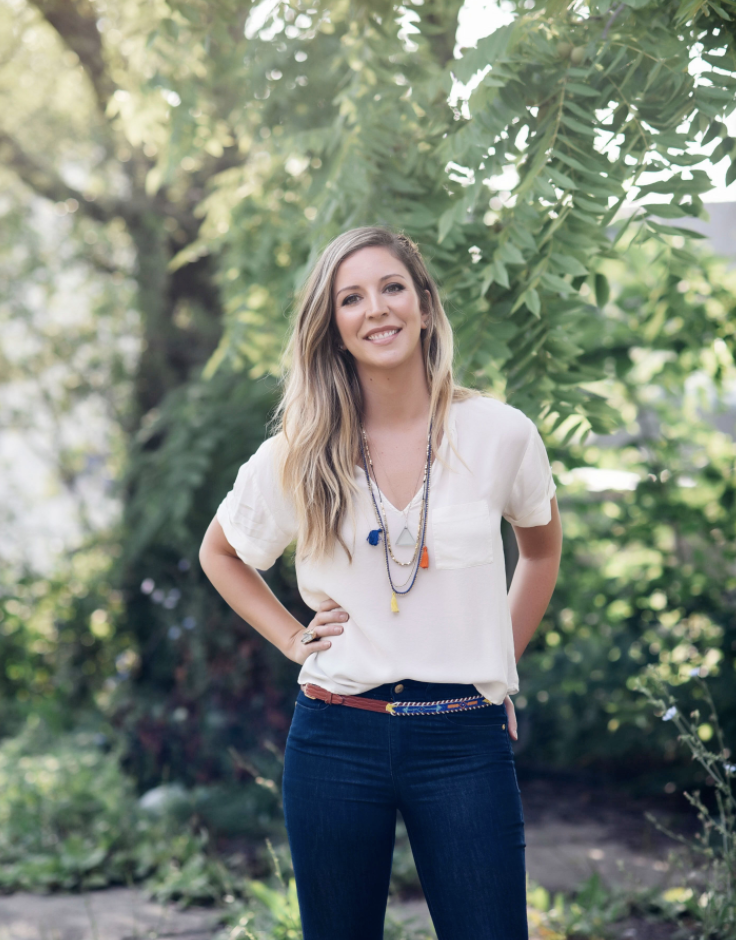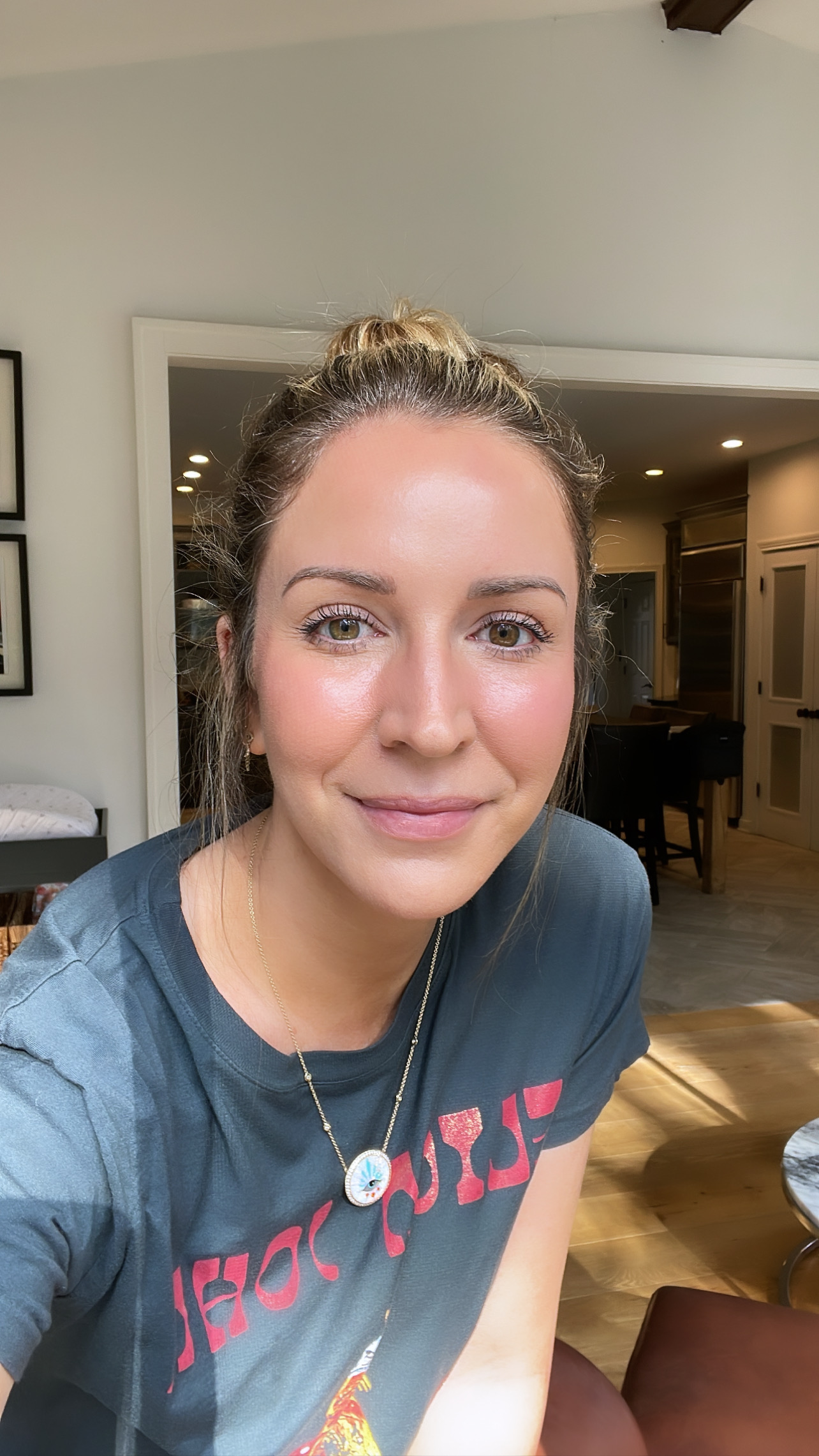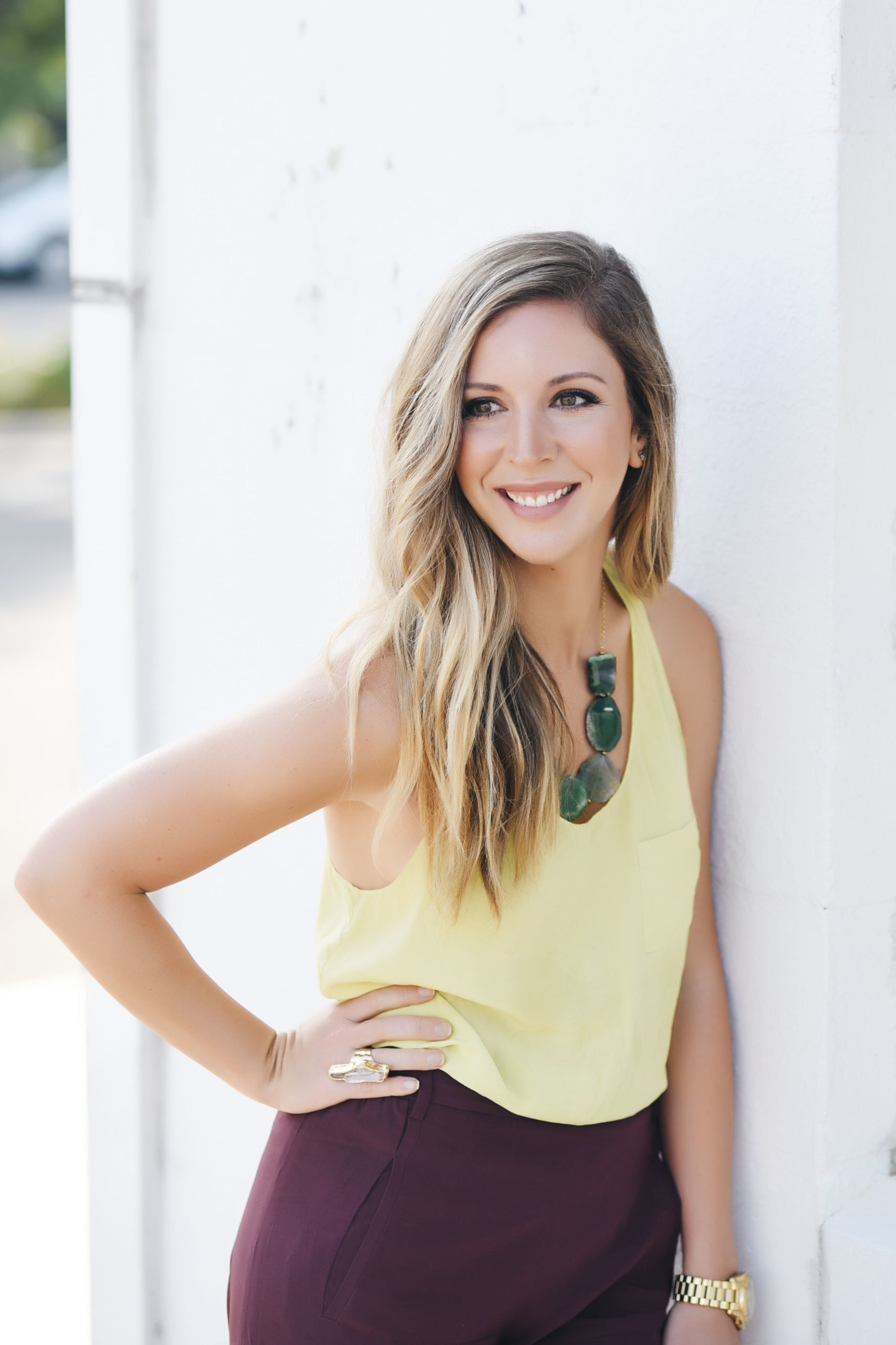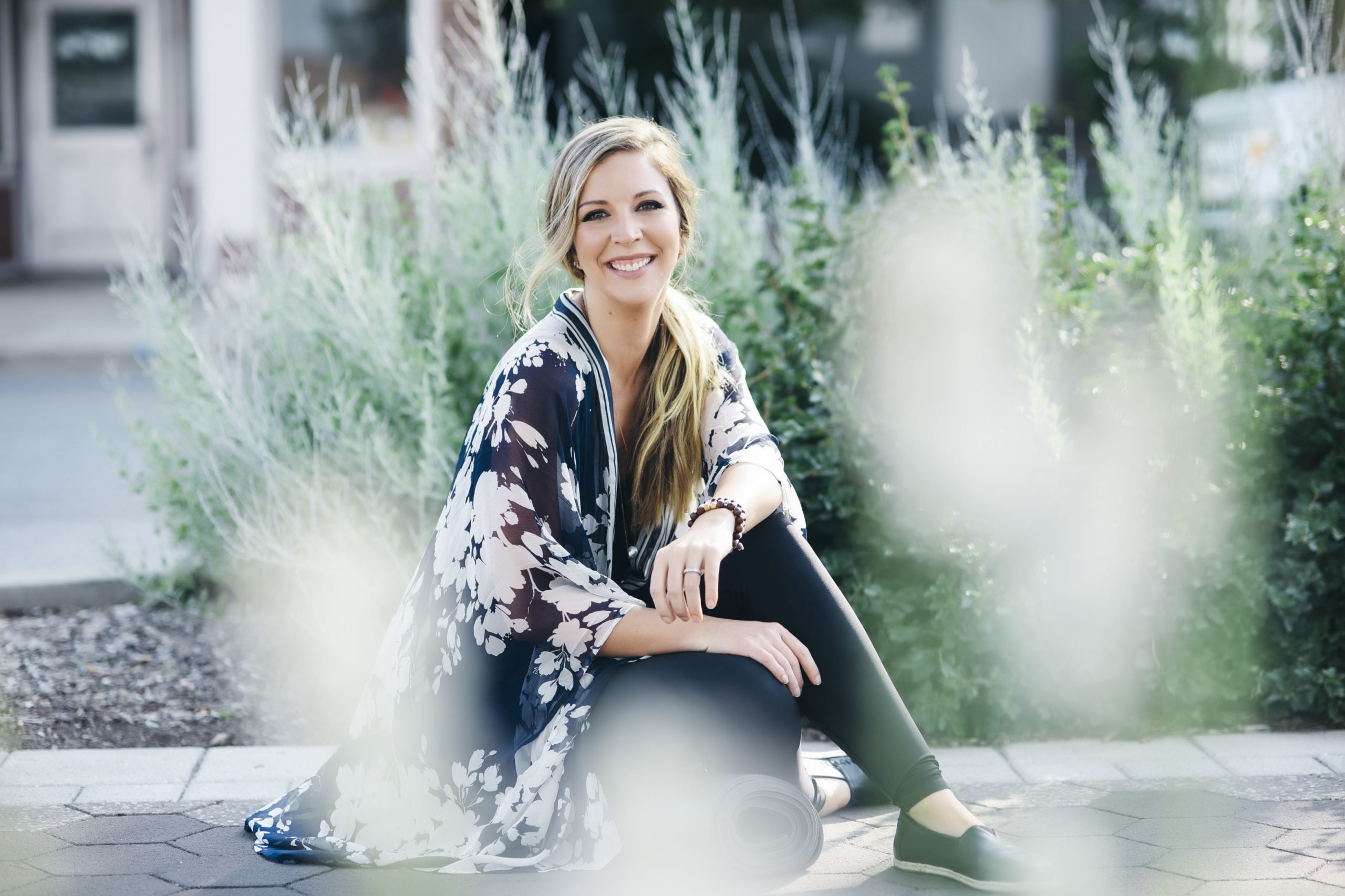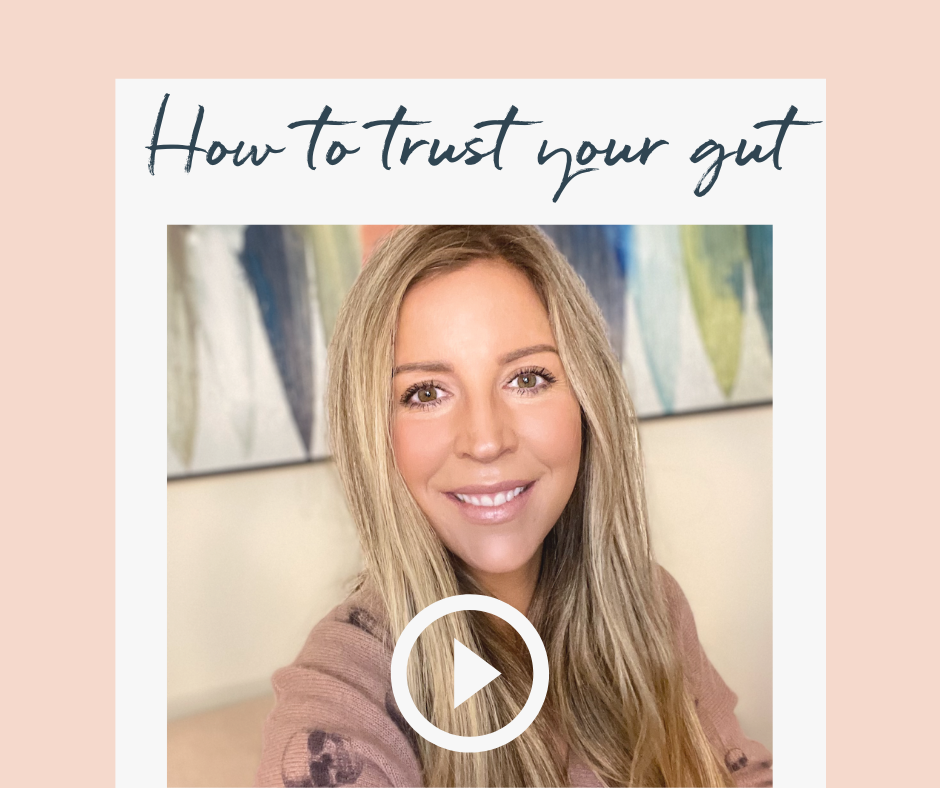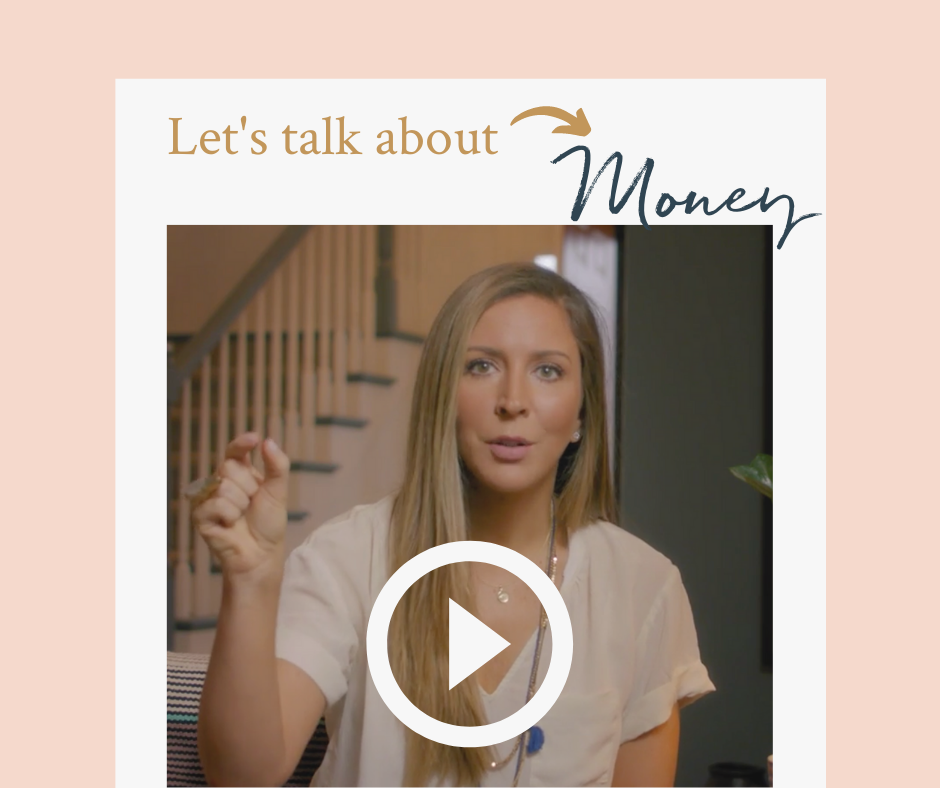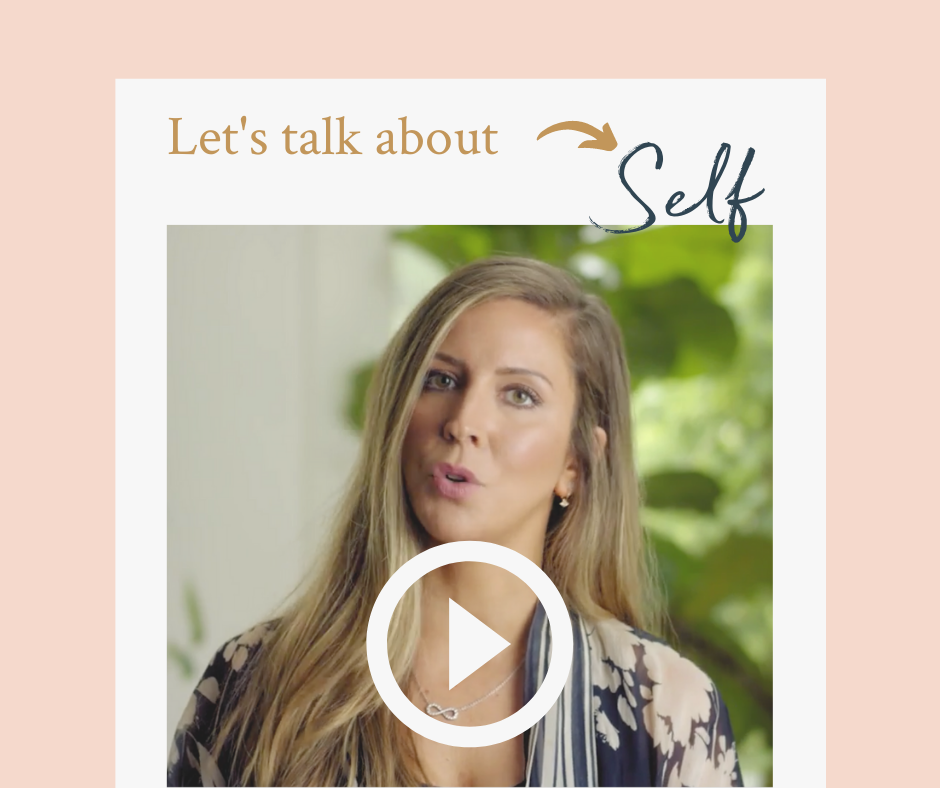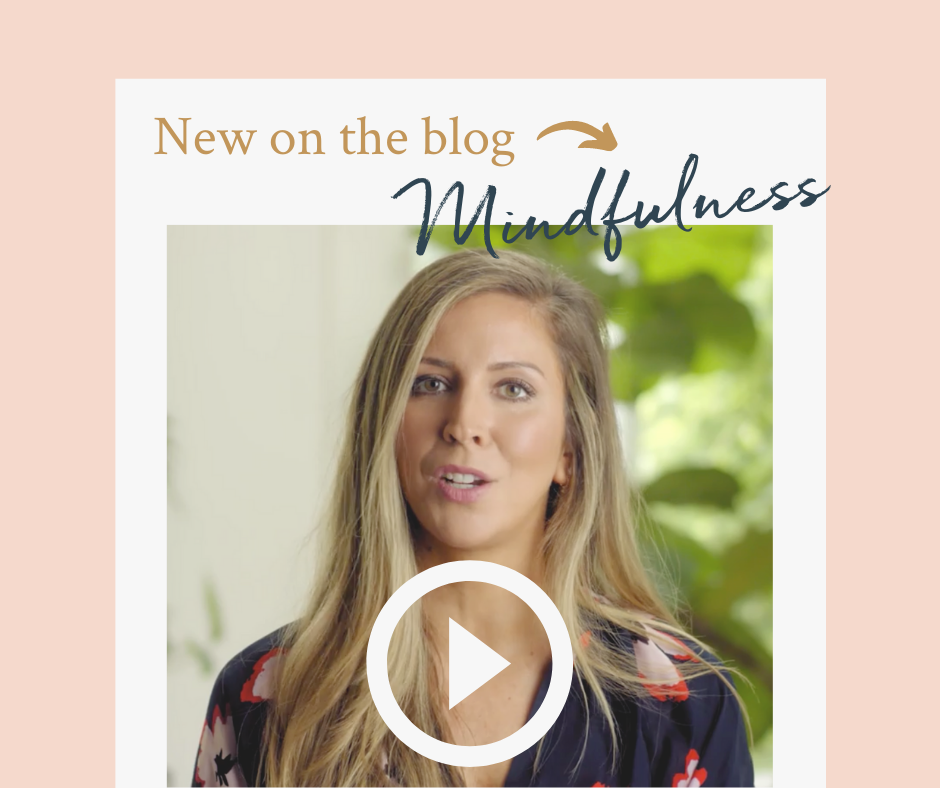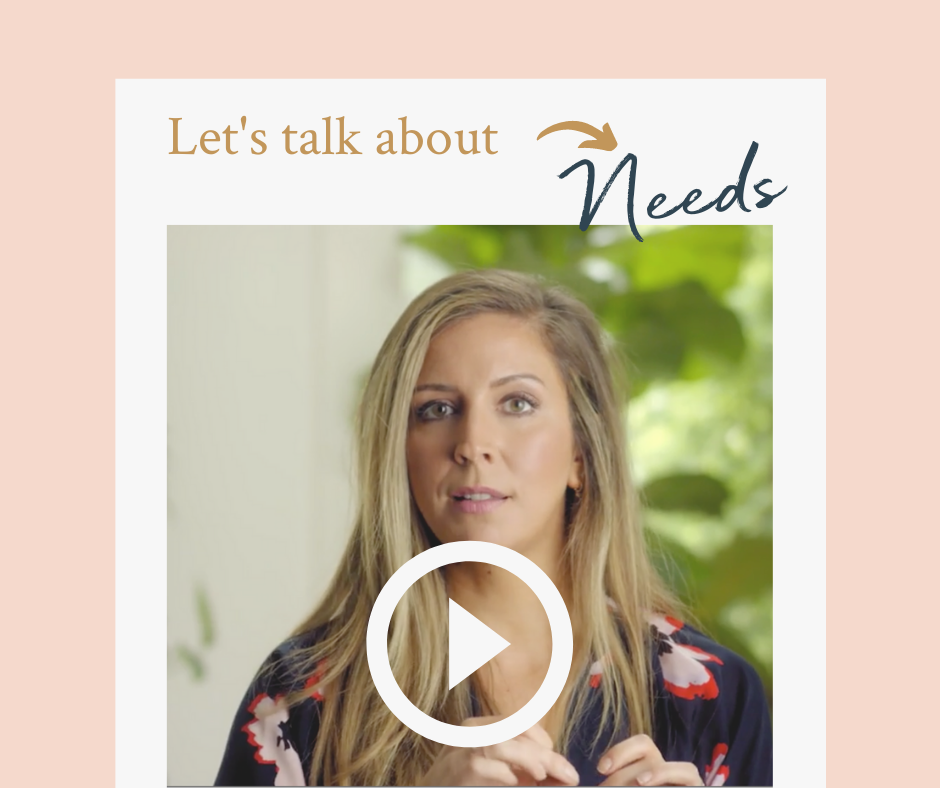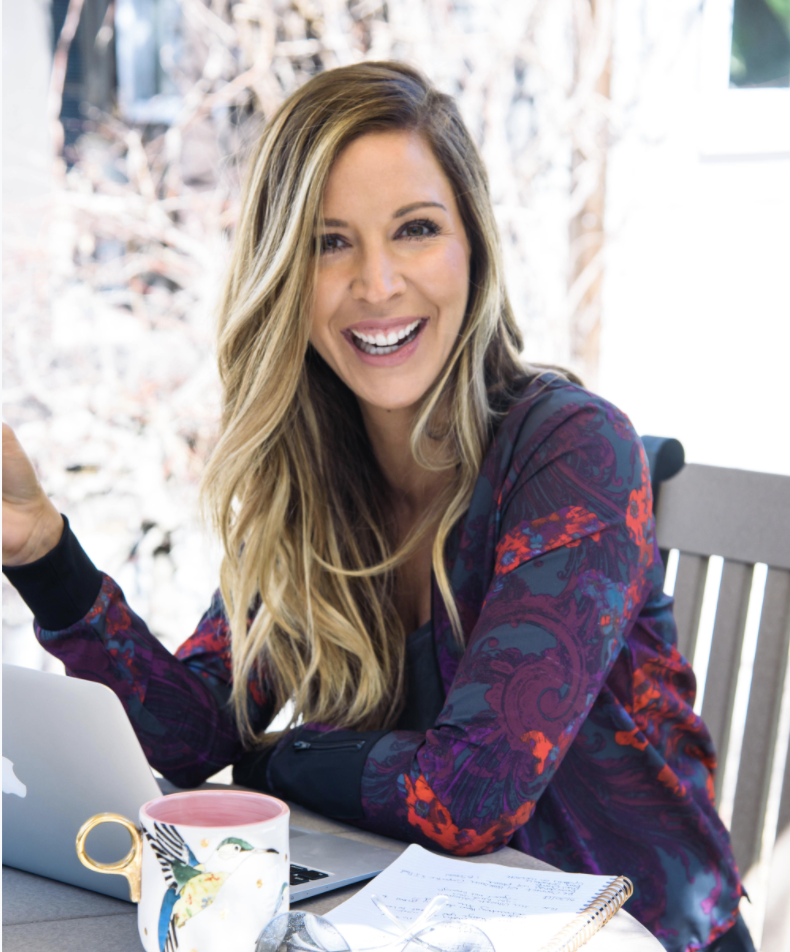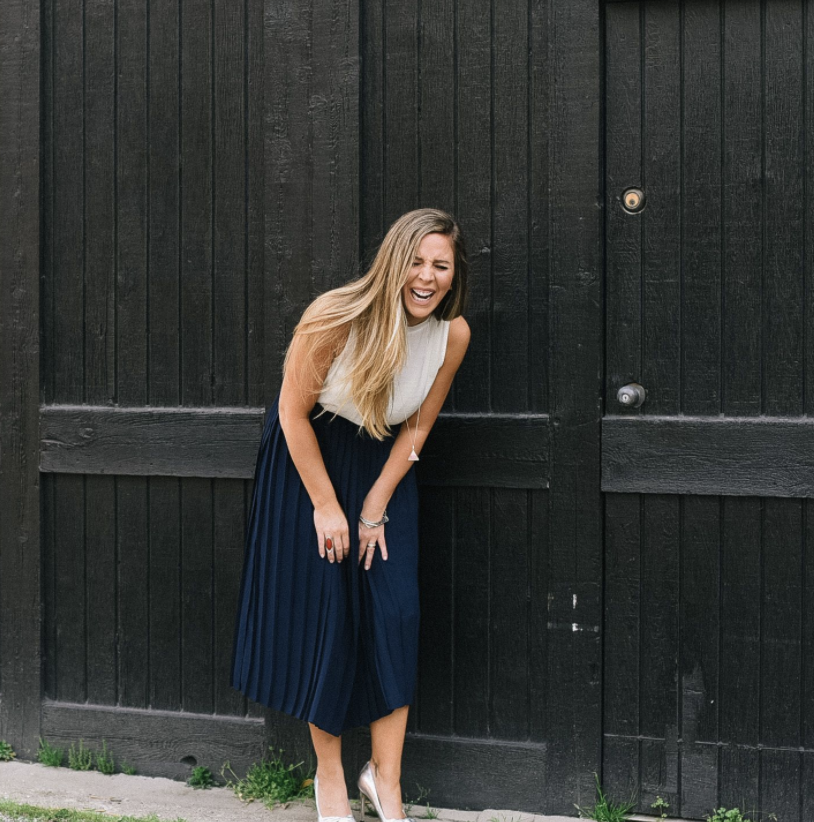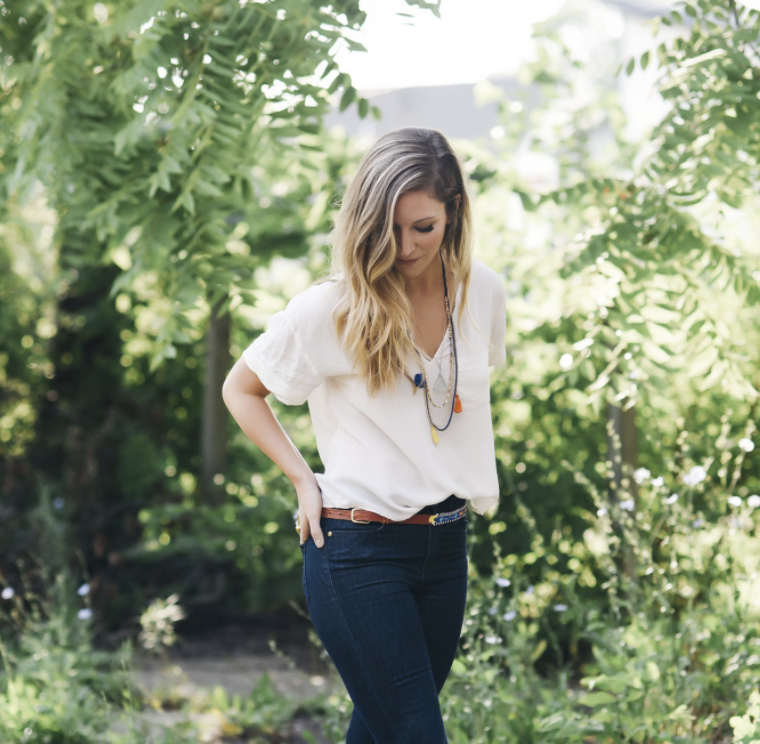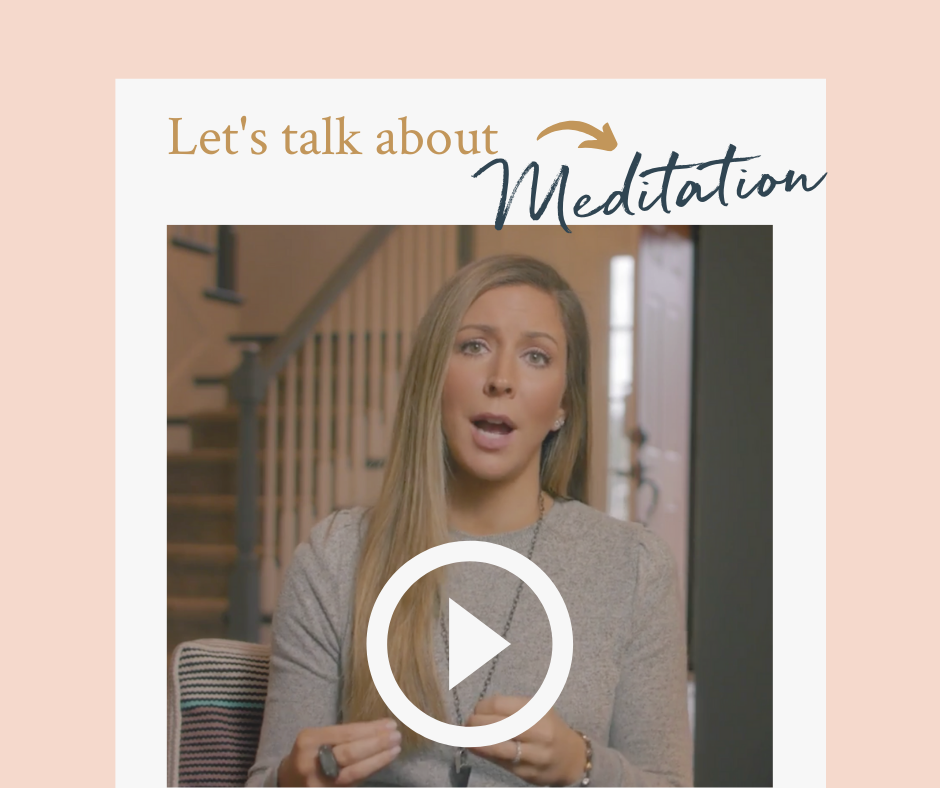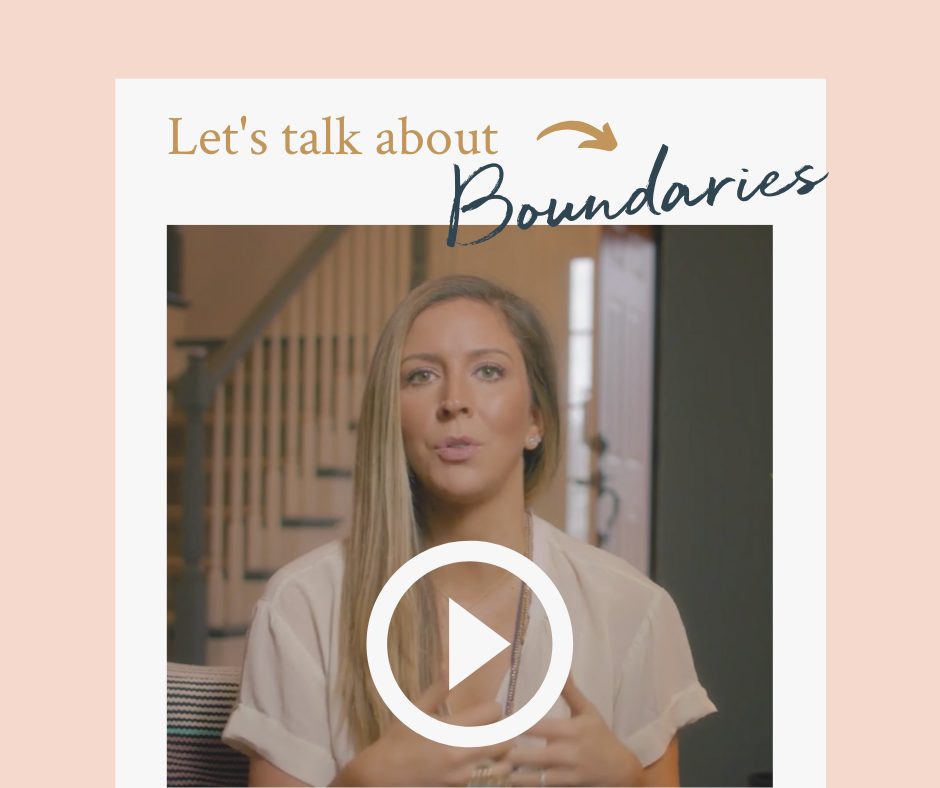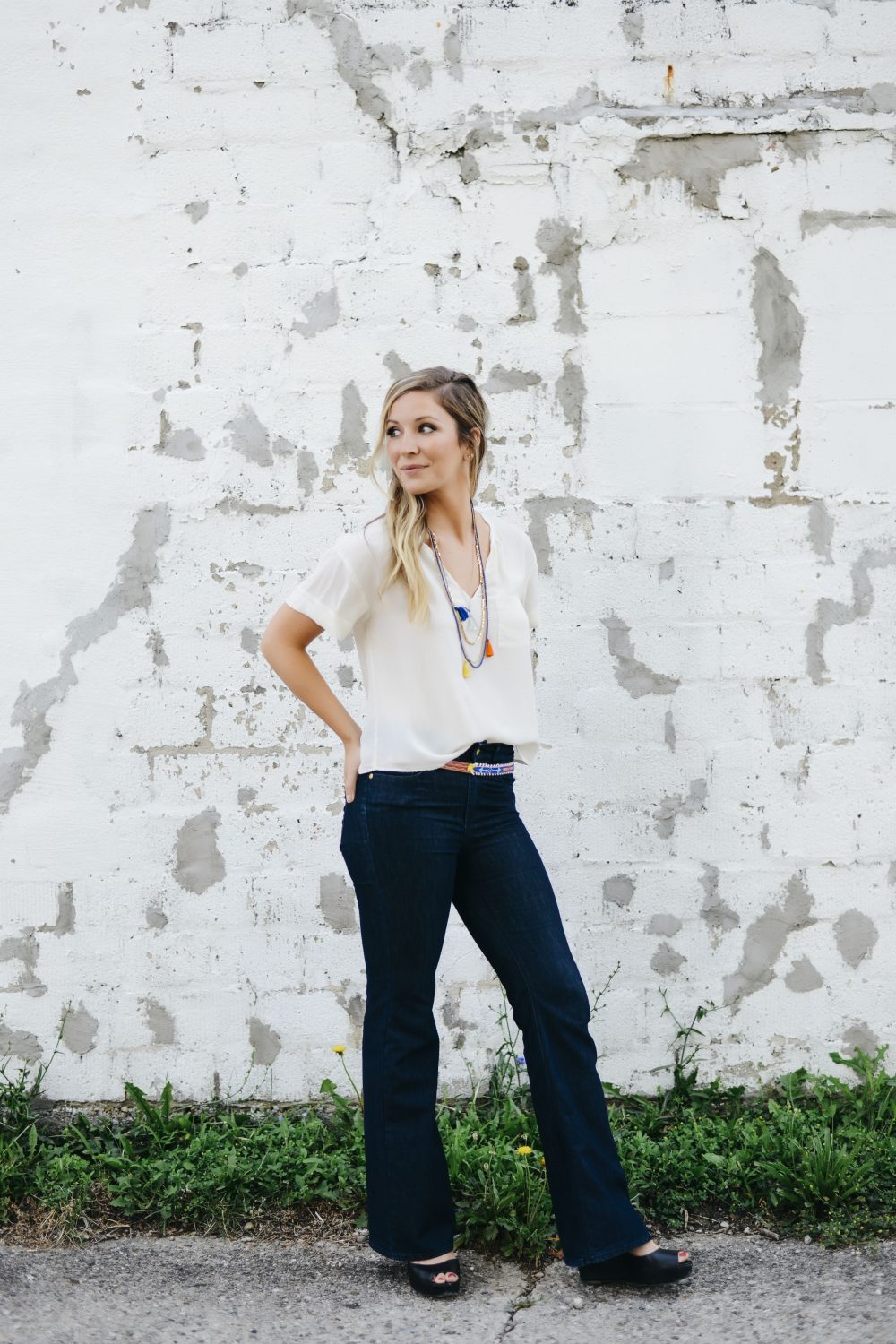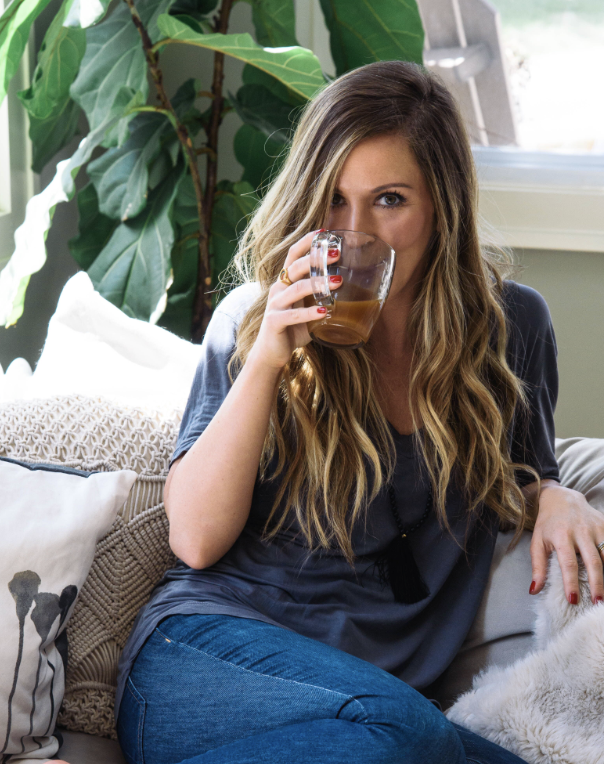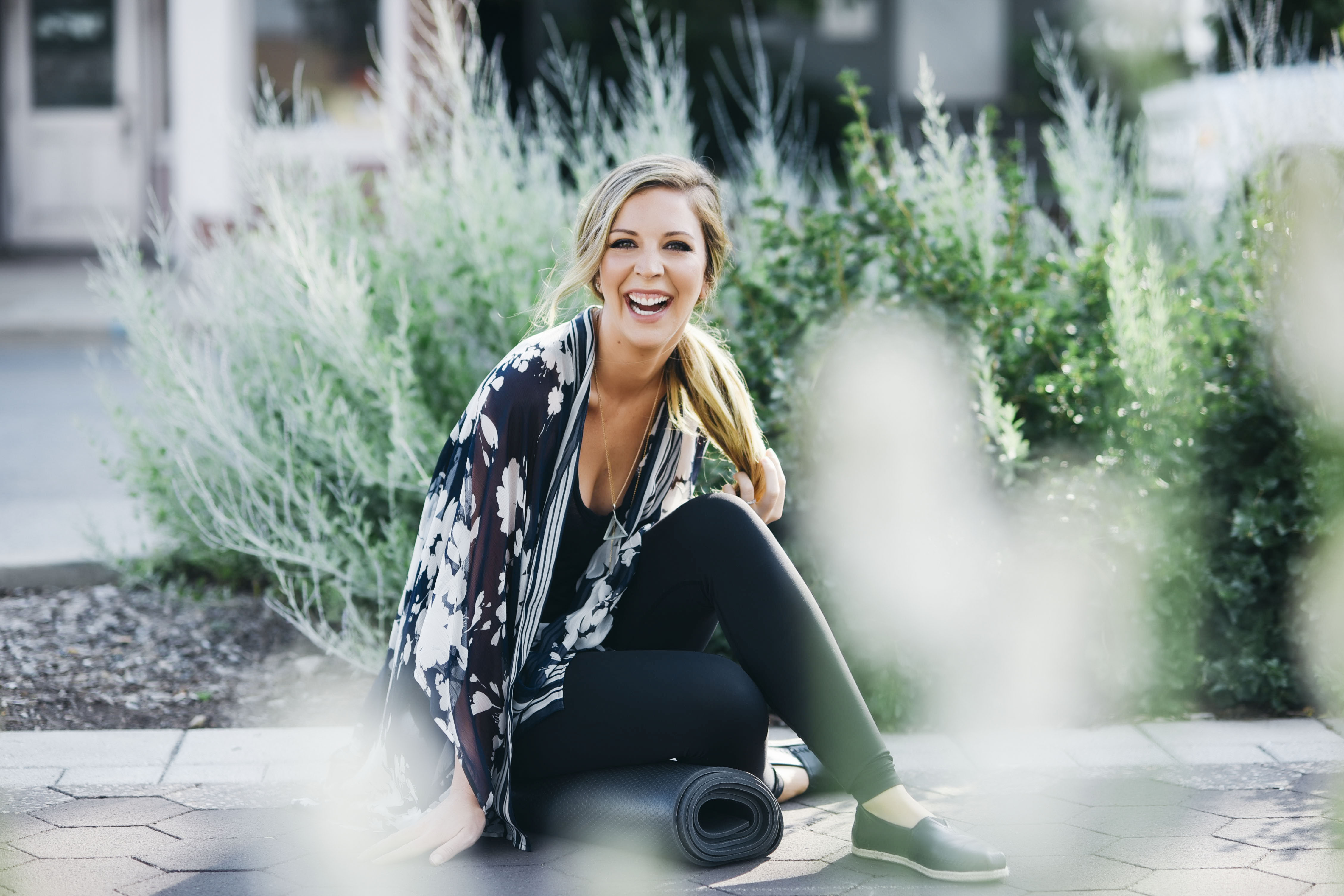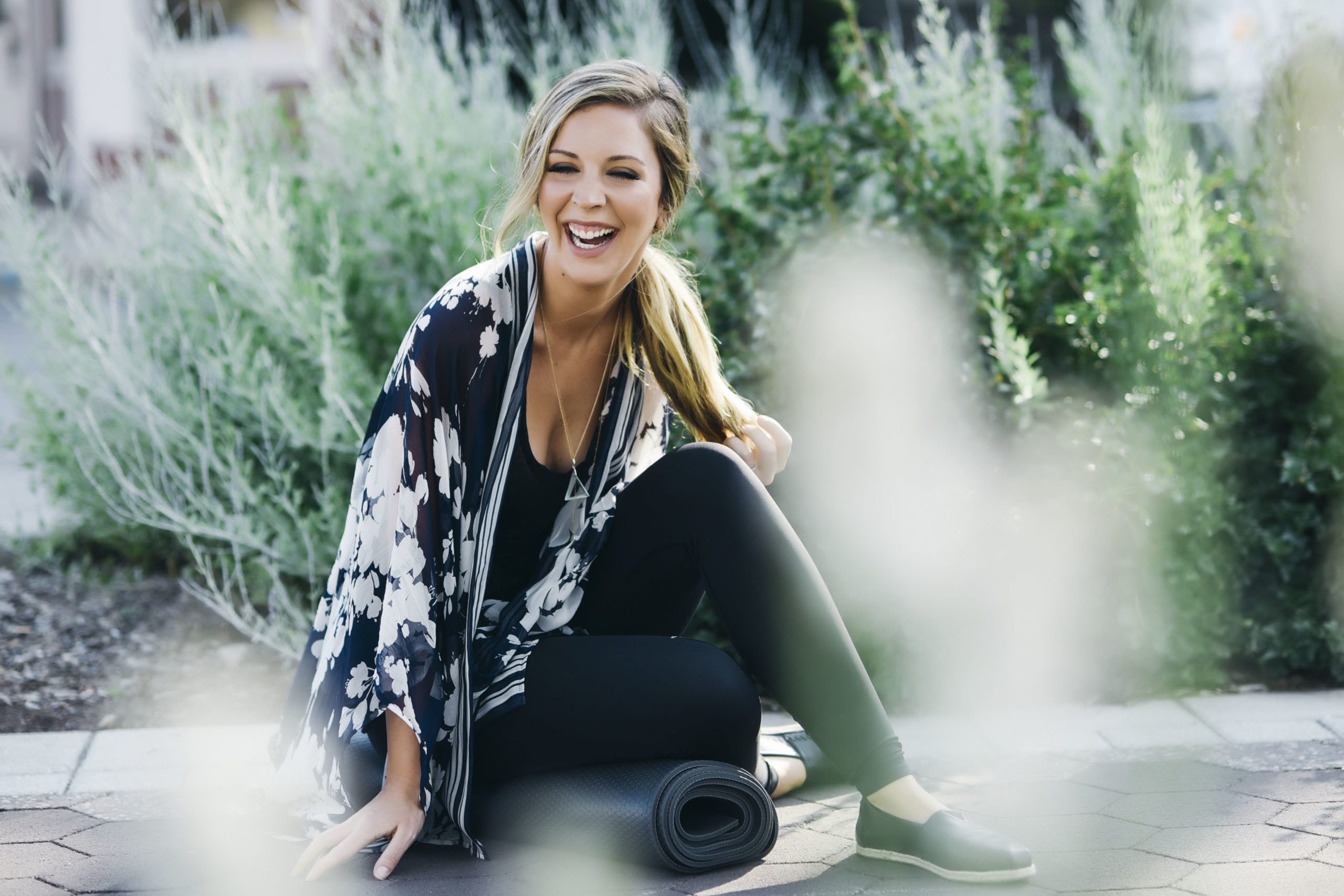Don’t Cut Your Own Bangs: Episode 20
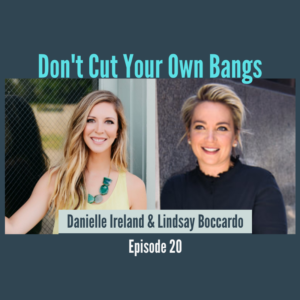
Want to listen along? Click HERE
Danielle: Just a friendly reminder that these are conversations intended for adults and there is the potential from time to time for the conversation to lean into adult subject matter or adult language.
Danielle: Hello, this is Danielle Ireland and you are listening to Season 3 of Don’t Cut Your Own Bangs, featuring my dear friend Lindsay Boccardo. She’s truly one of my favorite people on this planet. She is a certified coach, she’s a millennial expert, she’s a public speaker, and she’s a professional drummer. That’s right, not only is she an amazing speaker and she’s going to give you so many great little nuggets of wisdom in this episode, but she also has the sense of rhythm and timing, which is what I personally think is her secret to comedy, because the woman makes me belly laugh every time I see her. So I know you’re going to learn a lot, I know you’re going to laugh and enjoy, and you’re going to love her after you listen to this episode. Thanks so much for listening and stay tuned for Lindsay Boccardo.
Danielle: Yeah, I’m excited for our listeners to get to know you on like whole new level.
Lindsay: Oh, oh.
Danielle: Oh yeah.
Lindsay: Can we talk about how we met? I’m just excited.
Danielle: Let’s first go with how we met. So folks, you know when a man goes to a lunch and learn?
Lindsay: Obviously this is classic.
Danielle: It’s like the famous song.
Danielle: (singing).
Lindsay: Truly.
Danielle: Yeah. So my husband goes to a lunch and learn, Lindsay is speaking about millennials.
Lindsay: Yep, in the workforce. Yep.
Danielle: In the workforce. And then they’re sitting next to each other, and then I’ll let you take it from there because you lived it. I just heard about it.
Lindsay: Yeah, I just heard about it. So we’re sitting there, and your husband is like the coolest dude.
Danielle: Oh my God, he’s so cute.
Lindsay: I think he’s awesome.
Danielle: I mean, that’s not what you were saying. But that’s like-
Lindsay: I won’t say that because he’s yours. But I will say… No, I think it was really interesting because he’s so well spoken and poised and kind, and he owns a Harley Davidson shop. So you’re like, what are you talking about??? You’re sweet.
Lindsay: So we were talking, he’s like, oh, my wife would love you. And I was like, sure bud.
Lindsay: (singing)
Lindsay: Like who says –
Danielle: – My wife would love you.
Lindsay: You are going to be best friends with my wife. So he’s like, do you mind if my wife contacts you? I’m like, this is strange. Sure, dude. And I give him my card, which I probably have given out 500 cards and 4 people have ever reached out to me.
Danielle: And I’m one of the four.
Lindsay: That’s right, guys. So I give him the card, and then probably within a week, I would say, wouldn’t you?
Danielle: Oh yeah. I waited like the cool three days.
Lindsay: You did.
Danielle: I didn’t want to seem too eager.
Lindsay: Yeah, can we hang out?
Danielle: Well because he came home, I don’t know if you know this side of it. So he comes home and he was like, babe, I got this business card. I really think you need to contact this girl. She’s so cool. She’s like right up your alley. I’m like, what do you mean? He was like, I don’t know, I just think you guys should be friends. And that’s literally what he said.
Lindsay: (singing).
Danielle: If our life were a musical, I really think… I don’t know. I think we could make our life a musical.
Lindsay: I do. And I will say we should try to do it on this podcast.
Danielle: Yes. And…
Lindsay: And here we go. It’s coming.
Lindsay: Okay, so you email me. I should pull up the email. I bet I could find it. And it was like, hello, I’m Danielle, and my husband-
Danielle: Why is my voice like-
Lindsay: I don’t know. Why is your voice like Delilah After Dark, right?
Danielle: But you know what, though? To be fair, I do feel like my email speak –
Lindsay: Yep.
Danielle: The way that I speak in emails-
Lindsay: You got it. We have talked about that too. We’re working on it, guys.
Danielle: I sound like Lady Mary from Downton Abbey in an email.
Lindsay: It’s not that bad, but okay.
Danielle: It’s pretty close.
Lindsay: I think I just found the email, you guys.
Danielle: It’s a little formal. Share it.
Lindsay: Oh, this is sweet. Okay, wait.
Lindsay: Hello, Lindsay. [laughter]. Hello, Lindsay, period.
Danielle: Hello, Lindsay.
Lindsay: Period.
Danielle: Period.
Lindsay: My husband, David Dellen, from Harley Davidson met you at a luncheon recently and spoke very highly of you. He mentioned that you specialize in working with young entrepreneurs/helping companies.
Danielle: Wait, did I spell entrepreneur right?
Lindsay: You nailed it.
Danielle: Did I?
Lindsay: Yeah, you did. Look.
Danielle: That’s a word, I have to spell check that word every time I write it.
Lindsay: It’s too hard.
Danielle: Entrepreneur and aluminum, I never know how to spell on my own.
Lindsay: Aluminum.
Danielle: Aluminum.
Lindsay: – Helping companies manage millennials, and that you’d be open to meeting. I’m always interested in getting to know more savvy business women in Indy. If you’re available, I would be free in the evening this Wednesday or Thursday. Warmly, Danielle. P.S., I love your website. The layout is great. And look at this picture.
Danielle: Oh my gosh.
Lindsay: So sweet.
Danielle: Look at my… Oh God, there’s my headshot.
Lindsay: It is her head.
Lindsay: Okay, so I get that email and I’m like, what? I’m like, sure, I’ll meet with you. Mostly because this is like the weirdest-
Danielle: Is this person a bot?
Lindsay: So I’m sitting in Panera.
Danielle: Mm-hmm (affirmative).
Lindsay: And you walk in.
Danielle: Mm-hmm (affirmative).
Lindsay: And I was like, oh, she’s looks rad, dude. She looks like a human, not like the email where she was a robot British person. That’s exactly what I thought. And we got salads.
Danielle: We did.
Lindsay: And we talked. We just talked about how you were just going to school to become a therapist.
Danielle: I was at the very, very, very, very beginning.
Lindsay: I even think you weren’t in school yet. You were going to school that fall. It’s got the date stamp on it. Oh, should we talk about how long we’ve known each other? 02/08/16.
Danielle: So I think 02/08. So that’d be February.
Lindsay: February.
Danielle: So I’ve gone through my first semester. So I’m in my second semester of the master’s program, and I was so terrified, nervous, sweating every day thinking about going to school, and I was so hungry for anyone that I saw that was like making a career that remotely looked like one that I wanted.
Lindsay: Yeah.
Danielle: And I think David sensed that because he saw my, I don’t know, my Gollum-like desperation at home. Like the way Gollum eats raw fish, I was devouring books, and I was like [makes chewing noises].
Lindsay: You’re welcome for the sound effects, guys.
Danielle: Yeah.
Lindsay: So we met up, and it was like, dude, yeah.
Danielle: It was so fun.
Lindsay: It was super fun.
Danielle: Yeah.
Lindsay: So we became friends, and it was like, David, good job matchmaking.
Danielle: Yeah.
Lindsay: And then we hung out for years. By now it’s been years, and you became a really important part of MEekend. Which the MEekend is where rising women leaders and radical self care meet. That’s where we use your different talks.
Danielle: Yeah. Gosh, so the first MEekend I talked about shame and the narrative and the stories we tell ourselves.
Lindsay: Yep. That was good, dude.
Danielle: Talked about, I think, permission. Which is funny that that’s come full circle because-
Lindsay: You did do a permission slip.
Danielle: Yeah, helping people write their own personalized permission slip to step into any new scary thing that they were thinking about.
Lindsay: Mm-hmm (affirmative).
Danielle: And then the second year talked about depression and anxiety, but I called it sloth and squirrel.
Lindsay: I loved it.
Danielle: That was so much fun. I actually had grown ass women that were paying to show up to this beautiful retreat that you put together and asked them to mimic the behavior of squirrels and sloths and then Bengal tigers, which I felt like-
Feel like listening along? Click Here.
Lindsay: Totally, which was like the super sexy one.
Danielle: It was. It was like the Beyonce’ of the animal kingdom.
Lindsay: You texted me and you’re like, what’s the sexiest animal? Like, tiger. And why are we talking about what’s obvious?
Danielle: Tiger. Like, next?
Lindsay: Next.
Danielle: Your friendship has a really special place in my heart, because not only is it just based in loving and adoring you as a human being, but also you’ve been a really great guiding light and support in all of my big, hairy, scary professional dreams.
Lindsay: Oh my gosh.
Danielle: You’re like, go, do.
Lindsay: Do it. Move out of the way so I can sell your book.
Danielle: Yeah. That’s right. I think it was, just shut up so I can sell your book.
Lindsay: Yeah.
Danielle: Just shut up.
Lindsay: Danielle, stop talking. I’m going to come on stage now, and what I’m going to do is I’m going to just like…
Danielle: But wait, I haven’t even properly introduced you.
Lindsay: Oh, hi guys.
Danielle: So Lindsay Boccardo, and probably I’m going to have a separate introduction, so this might be redundant. So thanks for listening to it twice. But Lindsay is a millennial expert, she’s a coach, she walks people through big transitions in their life. And she also walks companies, like incredible, incredible companies, through how to onboard and properly work with and build great relationships with the next generation of people coming into the workforce.
Lindsay: Totally. Yeah.
Danielle: And you’re like a bridge or a translator for these two worlds.
Lindsay: Exactly.
Danielle: And so take it from there. Tell us more about what you do.
Lindsay: That is what it is. So companies that are forward thinking, what they do is they contact me and they’re like, hey, we’re trying to recruit young talent, and we don’t want to just recruit them, we want to keep them. And there’s this idea that millennials don’t want to be in a company longterm, that they’re not faithful to company. But what it really is is if the company’s not freaking listening to them, they’re going to go. So their own needs have to be met, and their needs are different than Boomers or Gen-Xers. So they just have different needs at work. They have different expectations because of the way they were raised, because of what was going on in the eighties and nineties in our society. They have different ideas of what work is supposed to be. And forward thinking companies are figuring out how to create that inside their company.
Lindsay: So the person that we talk about all the time that does this really well is Martha Hoover at Patachou. She’s a restaurant mogul here in Indianapolis. She’s got the best restaurants in town. She’s amazing, and she totally gets that idea. And so I get to work alongside people like her who understand that millennials, they don’t just want engagement in their work, but they want their life to be enriched by their work. Which is really different. Which is really different than what other companies would say. So work is really more of a lifestyle than it used to be. It’s not just a place to make money.
Danielle: Well I think that’s what makes the work-life balance. So it’s such a complicated concept.
Lindsay: Well, especially now. There really is no work-life balance. But it’s like you to have love your work so much that it’s really a part of who you are, and it’s an expression of who you are. So if you were to ask my parents, they’d be like, dude, we got jobs to put food on the table, to make money to put food on the table. And that’s just not how we live now.
Danielle: No.
Lindsay: So yeah, I love helping companies adjust to that, and understand how they need to change both for their perspective and their messaging and then their culture, in that wave. And then when I started my company, I was just career coaching millennials. So that’s my background, is helping a millennial do a couple of things inside their company. Self advocate for themselves, communicate clearly, and become more self aware. So any millennial that wants to become the top of their, whatever their industry is, they’re going to need those skills. Your emotional intelligence is one of the most important factors when it comes to capping your salary, seeing how high you can grow, seeing how you can be the best in your field. You really have to have a ton of emotional intelligence. So yeah. I love getting to train millennials in that too.
Danielle: And you’re really good at it.
Lindsay: Thanks. I love it.
Danielle: But yeah, so that’s what you do.
Lindsay: Yeah.
Danielle: But there’s also more to who you are. Which is why I’m so excited to be interviewing you and sharing, I don’t know, just your joy and your zest and your story with with the podcast listeners. It makes me think about that Maya Angelou quote that “people forget what you said or what you did, but they’ll always remember how you made them feel.”
Lindsay: Mm-hmm (affirmative).
Danielle: Every time I have an interaction with you, social, professional, or combo of both, I always leave feeling, I’ve got this.
Lindsay: Oh my God, that’s exactly what I want.
Danielle: I actually didn’t know that, which is kind of amazing. That wasn’t scripted.
Lindsay: Guys, we are going off script. We are sharing are hearts. [laughter].
Danielle: But I do. I do. When I leave seeing you, I’m like, you know what? I got this. I’m good.
Lindsay: You do. You’ve totally got it.
Danielle: But I felt that when we met for the first time.
Lindsay: Yeah, I can totally see that.
Danielle: You know, talking about life. And then I feel that when you’re giving me encouraging, I don’t know, advice about career choices or leaps of faith. You’re like, you’ve got this. And I’m like, you’re right, I do.
Lindsay: You’ve totally got it. I think that’s one of the things, we’re going to talk about this later, but in relationships, I think one of the gifts that I have, and in coaching as well, is being able to see through somebody’s BS, basically.
Danielle: Their fear?
Lindsay: Yeah, being about to see through their fear. So when we have encounters and when we’re talking, you know it’s super clear that you are actually very competent and you have what you need, and you’re just afraid. That’s totally different than somebody who really honestly may not have the skillset that they need to do this, and instead of sharing their experience, they’re just bragging. And so we talk about there’s a difference between sharing something that works well and bragging.
Danielle: And bragging. Yep.
Lindsay: And so you are licensed therapist. You have more training than most people ever have around mental health, healthy relationships, how to relate to other people, how to relate to yourself. And so that is so valuable in today’s day and age. Really. And because of your background as a dancer and as a performer, you can translate that in a million ways as a public speaker. And I would say most therapists aren’t really interested in being public speakers. Those are kind of opposite ends of the kind of personality spectrum, you know? So you are bringing this really unique combination of being a presenter and entertainer, in a sense, too.
Lindsay: And you’re bringing valuable content that people… We are so emotionally illiterate, we are so unintelligent in American culture. So I see you totally fitting that spot, and it being a need that’s so big that there is endless, the amount of value that you will bring to this world. You know?
Lindsay: And so that’s what I see. So when you tell me, oh, I don’t know about this, I’m like, dude, that’s just fear, that’s not real, because I see you. And I feel so lucky that I get to do that with my life. You know? And there’s other people where I’m like, hey, you’re going to want to get some skills and some education.
Danielle: Love your gumption. Let’s talk about some training.
Lindsay: Yeah, let’s go and talk about your actual skills.
Danielle: So I love how you phrased the bragging versus sharing. Because I know we talked about that a little bit, and thank you for bringing that up. So the core themes for this season of Don’t Cut Your Own Bangs that I’m really interested in exploring, permission, perfection, procrastination.
Lindsay: Totally.
Danielle: And I think I’m going to go on a limb and say for women in particular, sometimes we dull our sparkle, right? Hold ourselves back.
Lindsay: Oh my gosh, totally.
Danielle: And kind of dim our light. Because I don’t know if it’s permission, or that we don’t feel that we’re perfect, or that maybe we think it’s going to be better later, and so maybe it’s a form of procrastination, but the idea of exploring what is sharing your best self, particularly with social media. So let’s focus on social media for a second when it comes to bragging versus sharing.
Danielle: So something great happens to me, I have a great success at work, or I’m in a great relationship, or I don’t know, I have an awesome trip or great experience.
Lindsay: Totally.
Danielle: And I want to share that. I want to share that because my personal philosophy is that the sharing of joy amplifies joy. So when I find something that brings me happiness, a song, a recipe-
Lindsay: When you spend time with the whales.
Danielle: When I went swimming with whale sharks.
Lindsay: And you were like a tiny fleck in the picture and the whale was half the page.
Danielle: A goldfish eating a speck of dust. Yeah.
Lindsay: Truly.
Danielle: Yes.
Lindsay: You guys got to see this picture. Is that in your IG?
Danielle: Yeah, I’ll be sharing. But it’s on there, yeah, if you scroll. Scroll through all my stuff.
Lindsay: Guys, look at everyone of them. And comment a unique, thoughtful comment.
Danielle: No one has time for that. But what is the difference in a world of Insta-bloggers and influencers and, I don’t know, hashtag living your best life, or even like I’ve seen hashtags of like my life is your vacation. What is that difference between hubris and also sharing joy? And that’s confusing and complex and probably too much for us to parse through in one episode, but dammit, we’re going to try.
Lindsay: But you know what? God damn it, we’re going to do it.
Danielle: We’re going to do it.
Lindsay: Yeah, because we talk a lot about Glennon Doyle Melton.
Danielle: Yes.
Lindsay: And you all, just go to her Instagram. Please.
Danielle: (singing).
Danielle: Momastery, that’s her blog. Momastery.
Lindsay: Momastery, yeah. I think we’ve talked about this before, too, because there’s something about when somebody tries to teach you about how to do your life. That could be a person, that can be a religion, that can be an institution that’s like, this is how you do this thing, follow me. That doesn’t feel good. It just feels controlling.
Danielle: Yeah.
Lindsay: And so we talk about how do I share what I’m learning without being like, you should really go swim with whales. That’s not really what you’re saying. You’re saying this experience was important to me. This is what I learned about myself.
Danielle: Yeah.
Lindsay: I think, and we’ve talked about this, when people ask me how to become a really good public speaker, I’m like, there’s five skills you need to present, but you also need an a shit ton of therapy. Like a shit ton.
Danielle: Yep.
Lindsay: Because therapy helps people realize that the way they see the world is very small, their version of reality is small. And as an example, like with the whale situation, you’re there to share your experience, you’re not there to tell everybody else therefore you should be this thing. And I remember one time I was talking to my therapist, Karen, who I love.
Danielle: Love Karen.
Lindsay: Karen, thank you. But we talked about what’s the difference between therapeutic process and, well for me, because I was a missionary, a religious process. And we talked about one is exploring with somebody, one is telling somebody how to think.
Danielle: Yes.
Lindsay: And so we get, you and I-
Danielle: Hold on. I need a moment with that.
Lindsay: Mm-hmm (affirmative).
Danielle: So one is exploring the process.
Lindsay: With someone, yeah.
Danielle: And the other is telling someone how to think.
Lindsay: Yeah.
Danielle: God, I need a moment with that. Because no one wants to be told what to do.
Lindsay: Humans are not built that way.
Danielle: That’s what makes toddlers… I mean, I haven’t had a kid, but we do have dogs. You know, let’s face it, they are basically-
Lindsay: Honestly, they’re basically eternal toddlers. They do poop on the floor their whole lives.
Danielle: Their entire lives, guys. It never stops. And we have to wipe their butts more than dog owners will-
Lindsay: Guys, I just did it two days ago.
Danielle: Yep. Wet wipe to the tush.
Lindsay: Too much pumpkin. Too much sweet potato and too much pumpkin. That’s what I’ll say.
Danielle: Oh God, yep. I’ve used this a handful of times in session, and I don’t know what I need to turn it into. I need to turn it into something. But like boundaries are discovered when kids learn two things. So one is I’m separate from other people. You can actually see that growing in development. When a child realizes like, wait, my hand is separate from this table. And you can see them spatially distinguishing the difference between their body and the thing that they’re touching, their body and their mom, themselves. And they’re like, oh wait, I’m different than you. I’m not you. So then we begin to learn that differentiation.
Danielle: And then that goes even deeper when kids start to want things and parents start to tell them no. When a kid hears the word no, it’s game over. We become velociraptors, Jurassic Park, testing the fence. Wait, hold on, Mom. I want this cookie. And for the first nine months of my life, whenever I have cried, you have given me whatever I wanted. And I wanted you to wipe my butt, and I wanted you to feed me, and I wanted you to just hold me, and now you’re telling me no. When a kid hears no and understands no, it is game over.
Danielle: And now we’re dealing with adults and it’s the same thing.
Lindsay: Totally.
Danielle: Any version of no. Any version of no. “Maybe or let’s think about it.” That’s the adult version of no.
Lindsay: Absolutely.
Danielle: Or here’s what we’ll do instead. That’s an adult version of no. But then the next thing that the kid learns when they’re, let’s say, three, is “why?” Because it goes from a boundary to a debate, and now it’s done.
Lindsay: Totally. I mean, when we talk about letting adults explore versus being told what to do.
Danielle: Right, yeah. Because when you tell someone what to do, they start to defend themselves. They get a little defensive.
Lindsay: Yeah. And I think there’s a difference between being a thought leader, like all your books right here. Brene” Brown is encouraging you to be you, and that’s a true thought leader. People who want to be that person, but haven’t done therapy, haven’t done their own work, sound bossy. And sound like, “I know how to get you there. You’ve got to do it my way. My way is the way to do it.” And I see it all the time in the life coaching world.
Lindsay: We talk about the life coaching world. It’s a little icky. Just because anybody can call themselves a life coach, they may not have any training at all. I’m telling you, after working in six years with clients, any time I have made a suggestion and told somebody what to do, the only type of people that do it are the codependent ones. Humans do not like to be told what to do. They want to come up with their own solution. We’re deeply creative beings.
Danielle: Yeah.
Lindsay: So we want to articulate the problem with you and explore that, and then come up with a solution that works based on our experiences and our situation.
Danielle: Yeah.
Lindsay: And so I see that as a huge difference between even just bragging versus sharing. I think what we originally were talking about was how much we make in business, or being like, dude, I just landed a six figure gig. It’s like, all right.
Danielle: I actually remember exactly what brought this whole conversation.
Lindsay: You do?
Danielle: Yeah. So we were at a, not an event, but a get together where we were surrounded by other people who are trying to generate opportunities for themselves and there is this nervous energy. So you being a musician, and me having a background in performance, there’s an element of-
Lindsay: You feel it.
Danielle: When people who are, I hate to use the word competition, but when we feel like we’re kind of going after the same things, there’s a, to quote Brene’ Brown again, when people are in vulnerable situations, they tend to shrink or puff up.
Lindsay: Mm-hmm (affirmative).
Danielle: And so we were in an environment where we felt like a lot of people were fluffing their feathers, puffing up a little bit. And it didn’t feel like, “hey, I am so excited. I’ve been working so hard and I hit this benchmark that I’ve been working so hard”-
Lindsay: “I’m like humbled by it and excited.”
Danielle: Right. But also, I’m allowed to be excited about this. And it was tough, because I’m excited about someone’s success, but what it felt like in the moment, or at least I think what we both took away from it, it felt like there was some bragging.
Lindsay: I’m actually better than you in this moment. I need to create a power dynamic where I feel bigger than you.
Danielle: Just so you know, no big deal, I just landed a Heinz Ketchup commercial that’s going to help me pay my parents’ house off and buy a new car. No big deal. I mean, I’m just trying to be hashtag humble, hashtag blessed, and it’s going to be fine. So I think that what we were wrestling with in that conversation was what is the difference between honoring your successes and celebrating your successes that you earned, and you have a right to-
Lindsay: Yeah, and feeling good about it.
Danielle: Mm-hmm (affirmative).
Lindsay: Yeah. What do you think the difference is?
Danielle: Flipping the script on me. I like asking the questions.
Lindsay: Oh, the teacher has become the student.
Danielle: Yes. I think the difference is intention.
Lindsay: So why can we feel it, though? Why are you and I, we give each other, we have like looks.
Danielle: Mm-hmm (affirmative), mm-hmm (affirmative).
Lindsay: When we’re in public at events [laughter].
Danielle: We do. It’s like A League of Their Own. Like one of is a pitcher and one of is the catcher. We’re like, oh, did you see that? Did you see that?
Lindsay: Got it, got it, got it.
Danielle: Signal, signal.
Lindsay: Dude, I’m good. I just thought about the last time we were together. And I looked at you, and you were like.
Danielle: Yeah.
Lindsay: I wish you guys could see her face. And I was like, we will be talking in the car on the phone in literally three minutes.
Danielle: Are you logging this in your brain? Because this will be discussed.
Lindsay: Do not forget this moment. How do you know?
Danielle: I think the difference is how it feels. So when someone is sharing joy with me, it feels like… Probably, I mean, to go back to the example you just gave of “you’re on the journey with me” versus “telling me how to do it.” So when someone is, let’s say, bragging, it feels more like they’re talking at me or down to me, versus sharing, which feels like you’re sharing an experience with me.
Lindsay: I think there’s a level of humility that keeps you in wonder and awe.
Danielle: Uh-huh (affirmative).
Lindsay: You know? So I’m like, oh my gosh, this is amazing. I get to do this. Versus like, fuck yeah, I did it. Oops, am I allowed to swear?
Danielle: Yes. Yes, of course.
Lindsay: But yeah, there is something about being like, I can’t believe that this is my life. Like holding success with a sense of wonder and excitement, and I want to share this with people. Versus like, see I’m bigger than you.
Danielle: Yeah.
Lindsay: I don’t know if I should say, you can delete this part.
Danielle: That’s okay.
Lindsay: But we have a joke where some of these people like whip their dick out on the table. So it’s like, all right guys, we all saw your dick. You’re bragging.
Danielle: Right.
Lindsay: But it’s like this joke of like, my ego is going to win and crush you. And I mean, we’ve been at women’s events, they swing both ways. Sometimes it’s a little dangerous, and it’s like you’re trying to crush me. Other times it’s like, oh my gosh, we’re all just in awe that we get to do we love.
Danielle: Well, I’ll tell you this. So when someone shares a success and the intention is truly to share a success, I feel inspired by that. And I’m like, you know what? Seeing that makes me feel like it’s more possible for me.
Lindsay: That’s totally different.
Danielle: When someone is, ha ha, I have something you don’t have, it’s like that feeling, it doesn’t give me permission to share in the experience with them. Right? And then that triggers my perfectionism.
Lindsay: Totally.
Danielle: Which leads right into comparison. I’m like, oh, they’ve got something figured out. I don’t have to figure it out. They have some magic skill that I don’t have, they have some ability that I don’t have, or I need to work that much harder. Or, bringing it back to procrastination, it’s probably going to take God knows how much time for me to figure that out, so I might as well just give up now than risk the failure of it.
Lindsay: I think that’s why it’s so important to me that when you talk about how Maya Angelou’s famous quote is you’ll forget what people said, what they did, but you’ll never forget how they made me feel.
Danielle: Yeah.
Lindsay: When you tell me, hey, when I leave the room with you, this is how I feel. I’m like, that’s it exactly. You better feel like you can do shit that I can’t do better than I can do, and I will stand there and sell your book. That’s like the meaning of life.
Danielle: Yeah.
Lindsay: You know what I mean?
Danielle: Yeah.
Lindsay: I’m not going to do everything. I’m not going to be good at everything.
Danielle: Did we just crack the meaning of life right there?
Lindsay: Honestly, you guys, if you’re still listening.
Danielle: You’re welcome.
Lindsay: You’re welcome.
Danielle: The meaning of life has been solved.
Lindsay: It is. Because it’s about connection.
Danielle: Exactly.
Lindsay: It’s about us being connected and saying, you need Danielle in this situation, or you need Lindsay, or you need one of our, we have so many friends that do cool stuff in Indy. So it’s like living in a place where I don’t have to be bigger or better than anybody. But we share life together, we share opportunities, and we can see. I think there’s something about feeling seen and understood that changes it from bragging to truly sharing.
Danielle: Yeah.
Lindsay: If you’re like, I just signed a six figure deal, I’d be like, dude, yeah, you’re buying me a pizza and we are celebrating. And you’d be like, oh my God, we’re going to go celebrate.
Danielle: Well, and I would tell you that by first saying, “let’s go to dinner. My treat. Can we get some extra lobster with a side of lobster sauce? And some extra lobster on our pizza?”
Lindsay: Yeah. Obviously there’s pizza there. But that is true.
Danielle: Thanks so much for completing an episode in season three of Don’t Cut Your Own Bangs. I appreciate you so much. And speaking of appreciation, I think it’s a little unfair that I feel like I’ve been doing most of the talking and I want to hear from you. So if you have a second or two, if you would leave a comment either on Apple Podcast, Spotify, however you’re listening, you’re always welcome too to shoot me a message through da******@*************nd.com. There are lots of creative ways you can connect with me there.
Danielle: Let me know your thoughts. It really does make me better. Constructive feedback or even just takeaways, what you find valuable, what you want more of. Let me hear from you. And of course, who doesn’t love the occasional compliment? If something touches you, you have no idea how much that just fills my heart with joy. Or maybe you do. Either way, please let me hear from you. Hope you continue having an awesome day, and thanks for continuing to listen.



